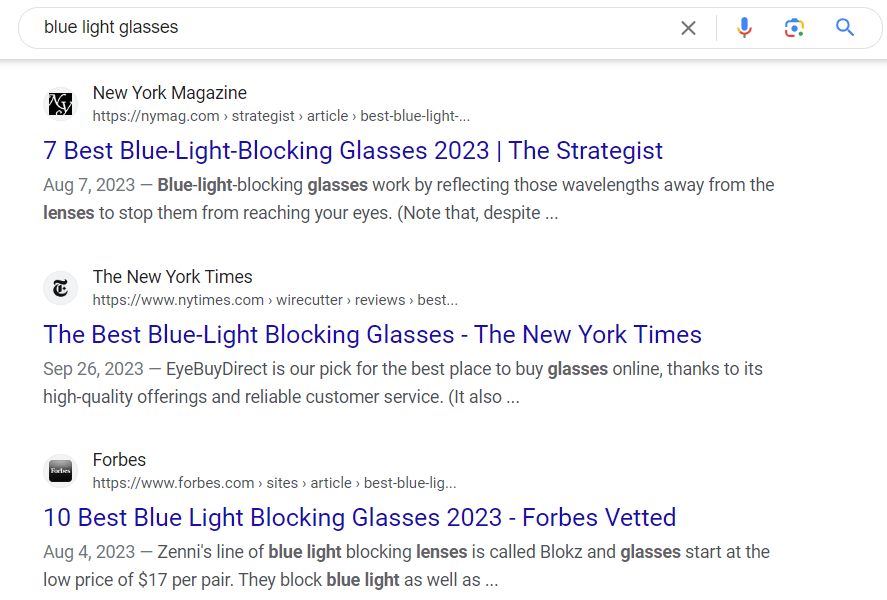Keyword research is critically important for ecommerce content marketing strategies. Performing keyword research ensures that all ecommerce pages are properly optimized for the best and most relevant keywords. But what does it mean to find the “best and most relevant” keywords?
Oftentimes, companies will go for the highest search volume keywords when choosing what keywords to optimize their ecommerce pages for. And, while this isn’t necessarily wrong, only using search volume as the criteria for choosing keywords often leaves companies with pages that are bringing in traffic but not revenue or pages that are not ranking.
The reason behind this is a lack of search intent analysis. You want to make sure that your best customers are the ones searching for the terms you optimize your website for, but search volume doesn’t necessarily give you this insight.
In order to understand the search intent behind the keywords you are researching, you need to analyze the keyword’s corresponding search result page. When analyzing search result pages you should ask yourself:
What type of pages are ranking in the search results?
Oftentimes, we see our ecommerce clients optimizing their product and category pages for keywords that do not have a purchase oriented search intent. You can tell if the keyword has purchase intent by looking at the types of pages Google ranks for that keyword. Are most of the pages informational? Are they listicle style affiliate pages?
If the majority of the pages ranking are not ecommerce pages (product pages, category pages, ecommerce brand homepages), chances are it has an informational search intent. For example, take the keyword “blue light glasses”:

As you can see, many of the pages ranking are informational. If the entirety or majority of the search result page for “blue light glasses” was made up of these informational pages, that would be a signal that the search intent is more informational. If there are only a few of these informational pages in the search results, it shows that there is both an informational and a purchase intent for that keyword. If there are no informational pages and only Shop pages ranking, that tells you that the keyword primarily has a purchase intent.
Use this to guide what keywords you choose to optimize for your Shop pages. If you are optimizing a product page for a keyword that has an informational intent, chances are that page won’t rank, and you may have more luck creating an informational resource page to target that keyword with.
Want to learn more about developing a conversion focused keyword strategy?

